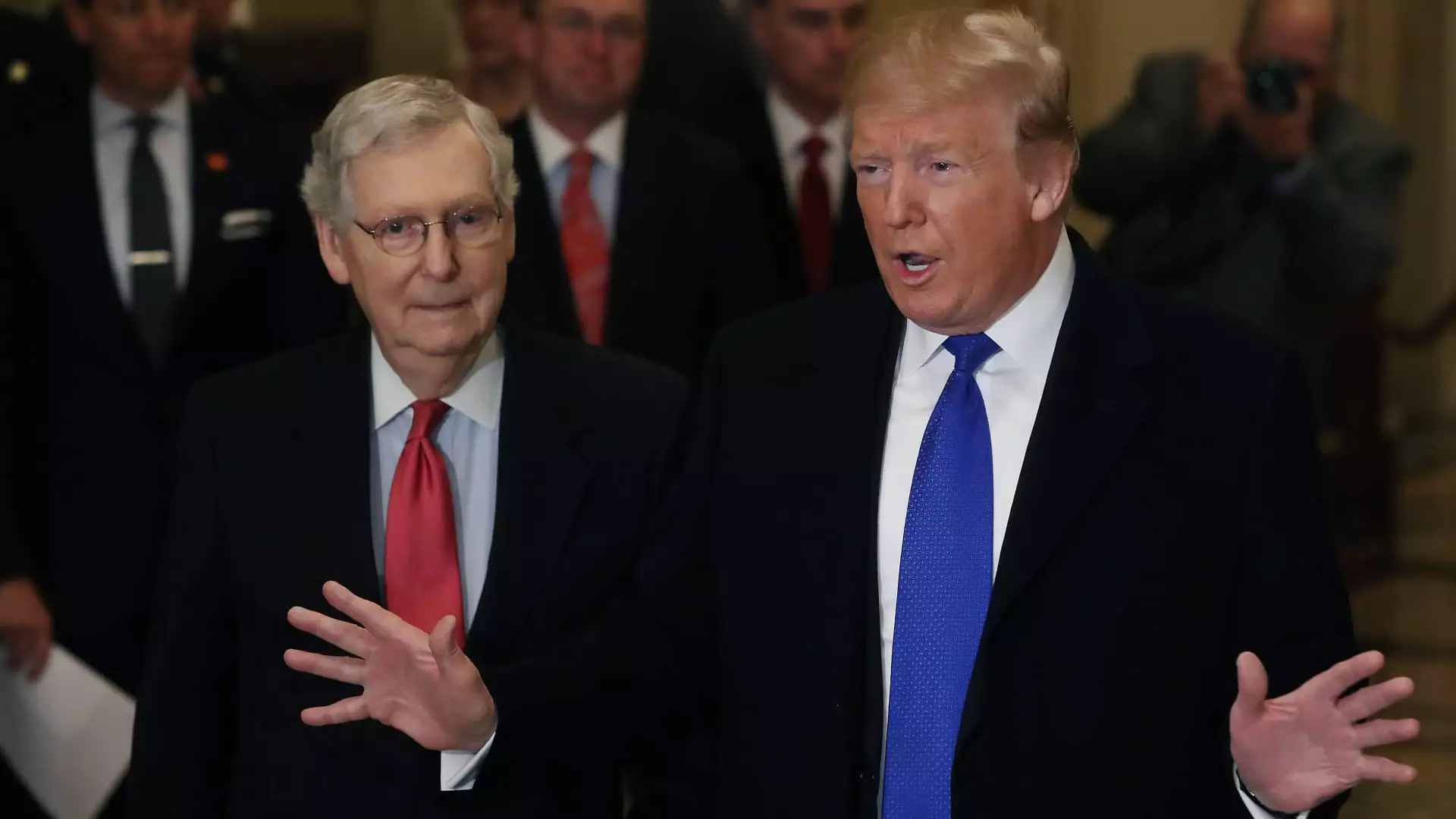In a noteworthy deviation from the party line, Republican Senator Mitch McConnell has openly challenged President Donald Trump’s expansive tariff initiatives. Expressing concerns in an op-ed for the Courier-Journal, McConnell cautioned that initiating trade disputes with key U.S. allies could elevate costs for everyday Americans as well as businesses. This stance is particularly significant as it comes from a high-ranking Republican, indicating growing internal dissent regarding the president’s approach to international trade.
McConnell outlined the potential ramifications of the tariffs, particularly emphasizing their detrimental impact on American industries and laborers. He articulated that while there are legitimate concerns regarding border security and international trade fairness, “blanket tariffs” are ill-conceived strategies with broader negative repercussions. This perspective sheds light on a crucial but often overlooked aspect of economic policy—namely, the balance between protecting domestic industry and maintaining international partnerships.
Economic Implications for Kentucky
The senator’s criticism strikes a personal chord, especially for his constituents in Kentucky. With a substantial number of farms reliant on international sales—about 75,000 are engaged in exporting crops—rising tariffs could jeopardize their livelihoods. Additionally, Kentucky’s robust auto industry, which is intricately linked to global supply chains, stands to suffer. These industries serve as essential economic pillars in the state, and McConnell’s concerns reflect a deeper understanding of the interplay between local economies and national policies.
Conversely, the distillation of bourbon whiskey also intersects with this trade narrative. Kentucky distillers produced an astounding 95% of the bourbon sold globally in 2023, showcasing the state’s integral role in the industry. Tariffs could inflate production costs, directly affecting exports valued at around $500 million, a significant sum in terms of local economic impact. Therefore, McConnell’s arguments are not merely theoretical; they resonate with tangible effects seen at home.
The Political Landscape
McConnell’s public dissent also underscores a broader tension within the Republican Party. The senator’s complex relationship with Trump highlights the intricate dynamics of loyalty, party politics, and individual economic beliefs. Although he has faced Trump’s criticism after not supporting the former president’s claims about the 2020 election, McConnell’s ultimate endorsement for Trump four years later reflects the political pragmatism often necessary in the modern electoral landscape.
As an elder statesman stepping away from Senate leadership after nearly two decades, the stakes are higher for McConnell to voice concerns that resonate with economic realities rather than partisan ideologies. His warnings suggest a growing schism that could redefine Republican economic policies in future debates, particularly regarding tariffs and trade relations.
The tariff debate serves as a critical juncture for the Republican Party and presents an urgent call for reassessing trade strategies that affect American families and industries. As McConnell articulates, it is essential to balance protective measures with consideration for economic realities, ensuring that policies do not unduly harm the very constituents they aim to protect. This dialogue is not merely about political allegiance; it reflects a progressive vision for responsible economic stewardship that prioritizes the well-being of American workers over partisan loyalty.


Leave a Reply